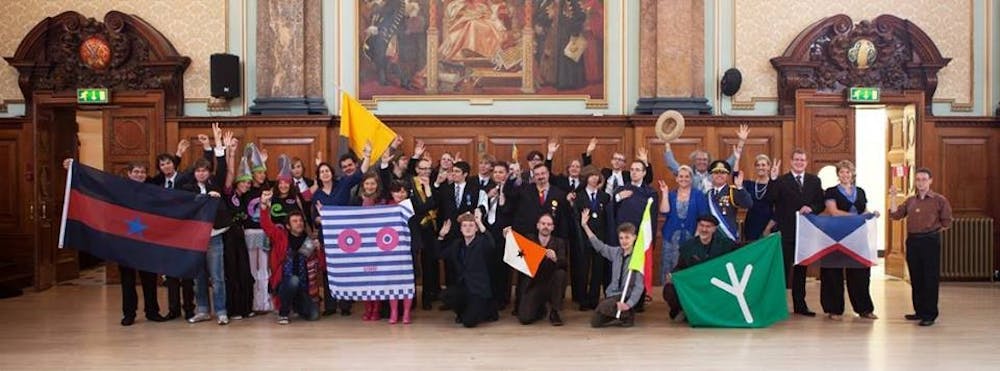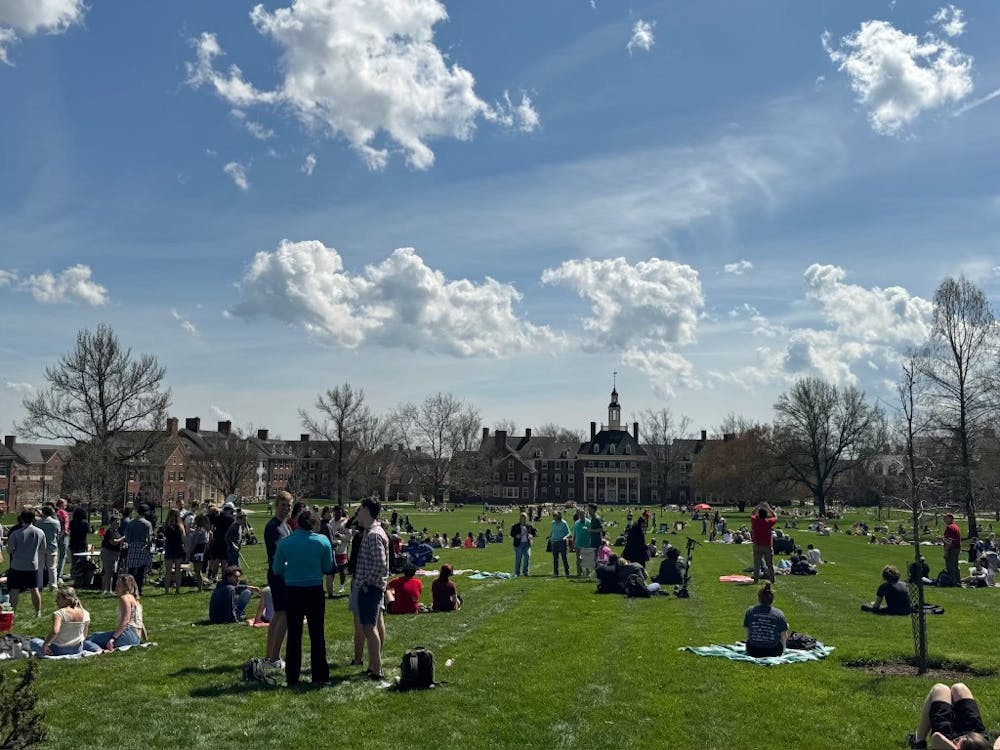A Reluctant Royal
By Gretchen Shelby, For The Miami Student
Over the summer, at the Free University of Alcatraz near Perugia in central Italy, an environmental agreement between micronations, known as the Alcatraz Accords, was signed during the International Polination 3 Conference over afternoon tea.
Those in attendance came from all over the globe to meet, learn and share with one another what it means to be a member of the micronational community.
There were journalists from Sweden, Belgium and a film crew from France; academics from the United States, Canada, the United Kingdom, Austria and many more places.
But most importantly, there were the representatives, and royalty from the micronations of the Principality of Aigue-Mortes, the Free University of Alcatraz, Angyalistan, the Bunte Republik of Neustadt, Noseland, the Republic of Benny, Ladonia, the Grand Duchy of Flandrensis and the Fomoire Institute - their titles ranging from Grand Duke, to Emperor, to King, Queen, Prince and Princess, President and Minister.
The term "nation," among many Americans, is often used in reference to the populations of nation-states. However, there are numerous types of nations, each referring to different groups of people connected to one another in various ways.
The concept of a "micronation" is most closely related to cultural nationalism, and can be broken down into three main categories: role playing, social experiments and political simulations. More often than not, people assume that those participating in micronations fall within the first category, immediately dismissing the entire concept as a farce.
To some, the idea may seem, at face value, childish, ridiculous or even narcissistic, but there exists many micronationalists who go beyond these negatives. Not every Grand Duke or Empress is out for self-glorification. There are a plethora of micronations who deserve the same amount of respect that any campus greek organization receives.
The founders and citizens of these micronations are building real communities of real people who share a culture all their own. Not so different from fraternities and sororities, these micronations appropriate history to establish a foundation for their identity, adopt meaningful symbols, create flags and traditions and often share a common goal or interest with one another. Some have physical territory, with or without human inhabitants, while others are solely online, or even others still who exist in a purely metaphysical sense.
These micronations are not out to cause trouble, incite separatism or become microstates. Instead, they employ humor, creativity and our species' natural desire to be a part of something larger than ourselves to create culturally rich and close-knit communities that operate within the framework of society and provide opportunities for individuals to discover their potential, experiment with alternative government structures and express frustration with current geopolitical issues in a productive way.




